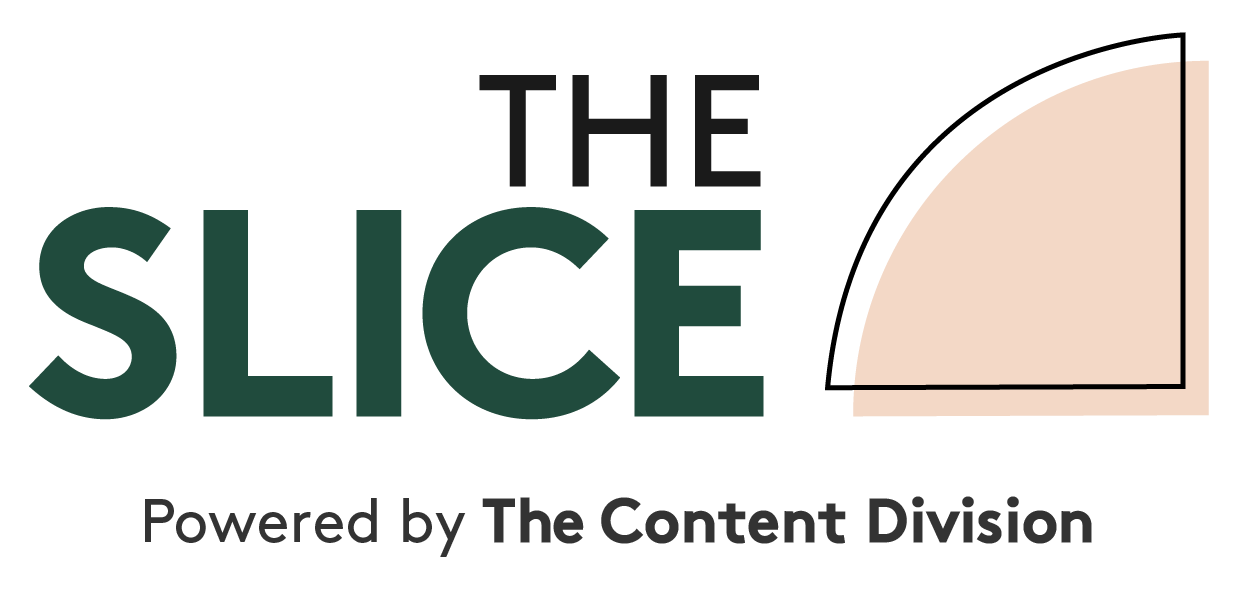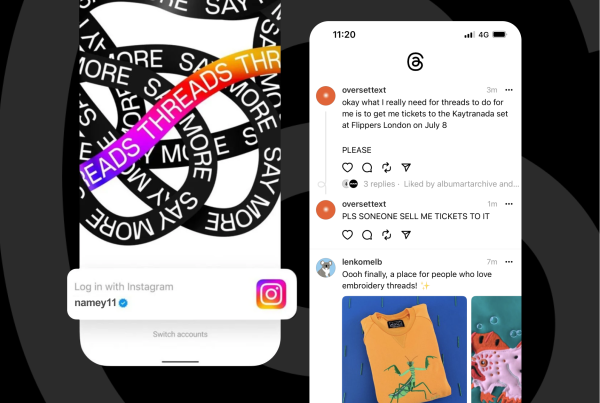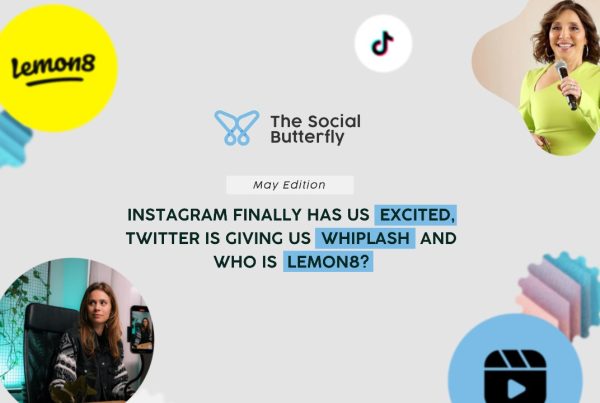
If your business had any trace of a marketing strategy in place at the start of 2020, it’s likely it has been derailed if not completely abandoned. But with the market recovering across a range of industries, it’s time to set our sights to the year ahead and look at where to focus your marketing efforts in 2021.
Networx Brisbane hosted its last marketing panel event for the year at The Calile last Thursday, where panelists discussed business and marketing strategies for the year ahead across medical, sports and education sectors, while discussing broader implications and strategies for other industries. These were the top takeaways for small businesses.
Find creative ways to engage your audiences
Clare Dale, the National Campaign and Strategy Manager for game development at the AFL, had a tough job on her hands when stakeholders (kids and parents) were kicked off the field this year. To keep their players and parents engaged during lockdowns across the state, AFL Queensland ran a social media campaign encouraging people to film themselves kicking a football into a wheelie bin.
“For us it was about inspiring optimism and hope for our community,” Clare said.
“Never more has the community sought a sense of familiarity, belonging and connection. Align your values with your audience and find meaningful ways to connect with them online and offline.”
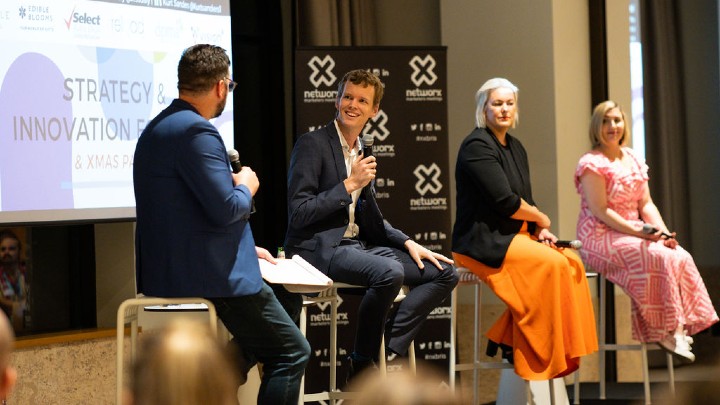
Goodstart Early Learning took a totally different approach. Faced with the barrier of not being able to deliver face-to-face education to kids, the childcare and education provider brought forward an online content and learning portal project that was planned to be produced in 2023 over 6 months, Head of Experience & Marketing at Goodstart Early Learning, Tim Cochrane shared.
Key takeaway: Connecting with your audience in a way that is meaningful is going to be more and more important for brands in competitive environments. Look for outside-the-box ways to add value for customers and engage on a deeper level.
Know when to talk and when to say nothing
If COVID-19 taught us anything, it’s that comms are more important than ever. We all saw the smorgasbord of ads reminding us we’re all in this together, but brands that broke through were opting to help, not hype.
This was high on the agenda for Jess Daly, the General Manager, Strategic Marketing & Communications at The Royal Australian College of General Practitioners (RACGP).
“As GPs found themselves in the deep end of the COVID-19 crisis, RACGP had a responsibility to compile and distribute information that would keep the industry informed and up-to-date,” Jess said. “Accordingly, our team’s focus shifted quickly into proactive communications about the industry developments.”

Key takeaway for brands: Like 2020, the year ahead will no doubt be filled with opportunities for brands to react and share their opinions of global events – whether that’s a black tile on Instagram, their position on an election or reminding their customer to stay safe. Understand how the story relates to your audience and respond mindfully (or not at all) rather than jumping on the bandwagon.
Create channel-first content
AFL Queensland’s Premiership Cup video campaign wasn’t just an opportunity to brag about having the cup in Queensland – it was also a chance to showcase the state as a whole. The organisation created a vertically-oriented, mobile-optimised video for a social-led campaign that was watched widely throughout the country.
On the contrary, the RACGP needed to engage a mass audience to get them to access their GPs. The brand executed a TV-led campaign with a fantastic and simple creative that created action.
Key takeaway: With more channels than ever at our disposal as marketers, it’s easy to take a creative-first approach that is adapted to channels. Identifying where your audience is first and adapting the creative to the channel will result in much more effective engagement and action.
Hire generalists
Jess Daly stressed that generalist marketing staff that can manage comms, PR, media and marketing are going to be important assets to have moving forward.
“The only reason we’ve been able to move forward this year has been that everyone has been so flexible,” she said. “I think ‘job description’ means something a little different now.”
Clare Dale from AFL Queensland backed this up by saying that agility, and the ability to be flexible and perform across multiple roles, will be a crucial skill in 2021 and onwards.
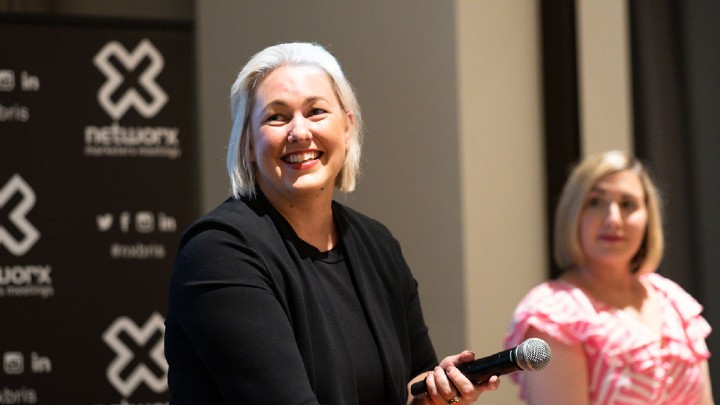
Key takeaway: Local, national and international events often have an impact on the way we do business. Having people with flexible skill sets that cover PR, comms and marketing execution will ensure the business can operate in a proactive and reactive state.
Reset your expectations
All three panelists spoke of managing new expectations. Across their businesses, they had been able to do a lot with a little during COVID-19, but they’re mindful of burnout heading into 2021.
“We’ve done so much with leaner teams and budgets during COVID-19,” Jess said, “but that’s not sustainable going forward.”
Key takeaway: Marketers and small business owners alike need to reshift their thinking and expectations to ensure they’re putting forward the appropriate resources and budgets to execute their marketing and sales strategies post-COVID. Otherwise, staff face burnout and disengagement.
